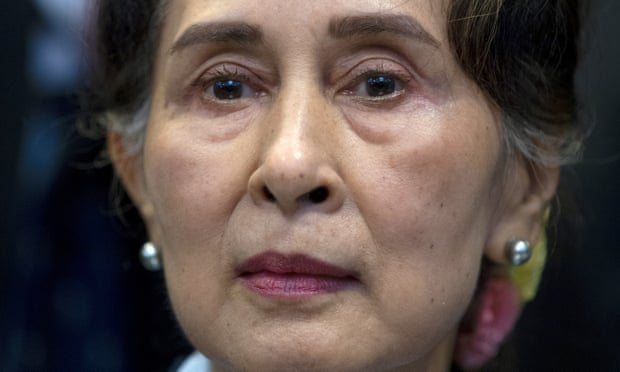Aung San Suu Kyi asks to reduce court time due to ‘strained’ health
The UN estimates that 3 million people across the country are in need of humanitarian assistance, up from 1 million prior to the coup. Access for aid agencies, however, is extremely limited. According to Save the Children, displaced people are instead relying on donations from local communities.

Aung San Suu Kyi has requested her court sessions be held every two weeks rather than every week on health grounds, according to her lawyer, as hearings for a series of legal charges filed against her by Myanmar’s junta continue.
The 76-year-old, who faces charges ranging from corruption to the illegal possession of walkie-talkies, requested the change, saying “she had to spend all weekdays at court so her health conditions seemed strained”, her lawyer Khin Maung Zaw said in a statement. The judge said he would make a decision next week.
The ousted Myanmar leader, who has been held in detention since the military coup on 1 February, missed a court session last month due to dizziness caused by motion sickness, though her legal team said at the time that it was not serious.
Khin Maung Zaw told Reuters that Aung San Suu Kyi’s health was not concerning and she was not suffering from disease or any specific sickness, but was dealing with tiredness from court appearances. “She is tired. At her age, it is not convenient to sit for hearings every day of the whole week … It is not a concerning situation. She is just tired.”
As her court hearings continue, there are growing warnings about the humanitarian situation across the country. The February coup, which is fiercely opposed by the public, has caused health services to collapse, paralysed banks, and left millions of children out of school. Alongside a peaceful civil disobedience campaign, conflict between the military and opponents of the coup has also intensified, spreading to areas that were previously stable.
Across Myanmar, 206,000 people have been forced to flee their homes, including 76,000 children, according to Save the Children. Many are sheltering in the jungle in torrential rains without adequate food, the charity has warned.
In Kayah state in south-east Myanmar, one of the worst-affected areas, about 22,000 people fled their homes last month alone, according to the UN. Almost 80,000 people are currently displaced in the state.
“Families are living on next to nothing, sharing just one meal a day between six or seven people. Children are already going hungry, and very soon they will start to succumb to disease and malnutrition,” Save the Children said in a statement.
The UN estimates that 3 million people across the country are in need of humanitarian assistance, up from 1 million prior to the coup. Access for aid agencies, however, is extremely limited. According to Save the Children, displaced people are instead relying on donations from local communities.
Last week, António Guterres, the secretary general of the UN, warned of “an increasing number of reports that humanitarian partners are being targeted or threatened by security forces and that bureaucratic impediments are put in their way”.
“It is crucial that the United Nations country team and humanitarian partners have safe and unimpeded access to the populations in need of life-saving humanitarian assistance,” Guterres said in a report sent to UN general assembly, which warned of a “real risk of a large-scale armed conflict”.


